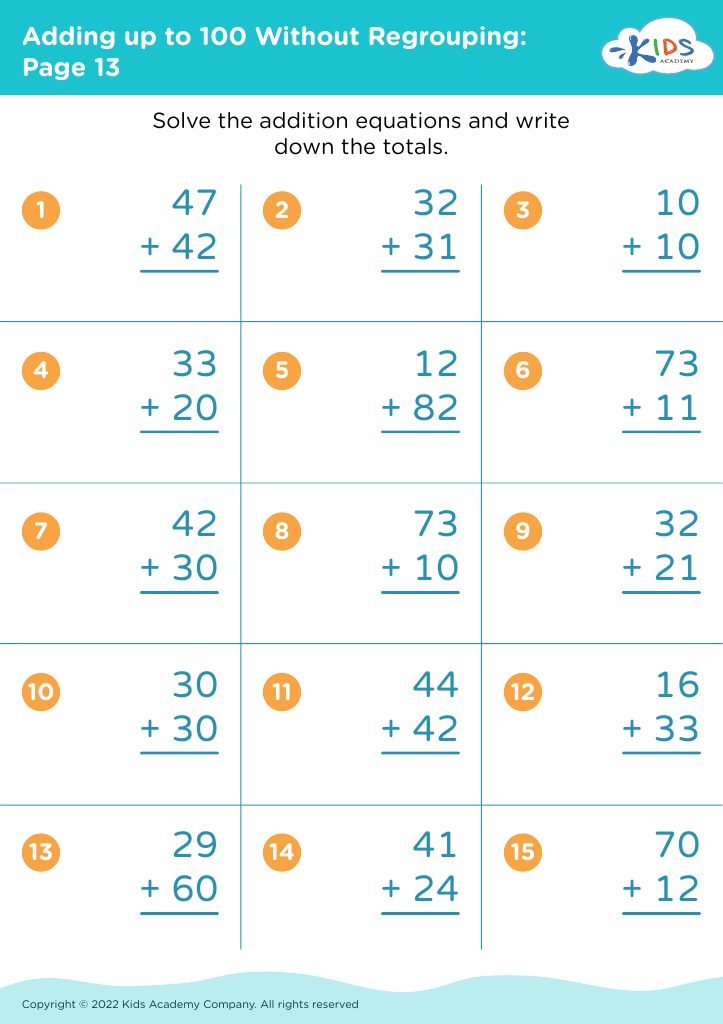Enhance Vocabulary Addition Worksheets for Ages 3-8
4 filtered results
-
From - To
Explore our "Enhance Vocabulary Addition Worksheets" designed for children aged 3-8! These engaging worksheets integrate vocabulary building with basic addition skills, promoting language development alongside mathematical understanding. Each activity is crafted to help young learners recognize and use new words, enhancing their literacy while they practice math concepts. Ideal for home or classroom use, our colorful and interactive worksheets keep learning fun and enjoyable. Watch your child's confidence grow as they master both addition and vocabulary! Perfect for early education settings, ensure your little ones build a strong foundation in both language and math with our thoughtfully designed worksheets. Start enriching their learning journey today!
Enhancing vocabulary for children aged 3-8 is crucial for their overall development and future academic success. During these formative years, children's brains are highly receptive, and the language they acquire lays the foundation for their communication skills and literacy. A rich vocabulary enables them to express their thoughts, feelings, and ideas effectively, facilitating better interactions with peers and adults.
Moreover, a robust vocabulary enhances reading comprehension. As children progress in their education, a strong lexicon helps them understand complex texts and engage in discussions about what they’ve learned. Engaging vocabulary activities promote critical thinking and creativity, encouraging children to explore the world around them.
Parents and teachers should also be aware that expanding vocabulary is linked to social-emotional development. When children learn new words, they can articulate their emotions and communicate their needs, fostering healthy relationships and self-expression. Increased vocabulary instills confidence, enabling kids to participate actively in classroom settings.
Ultimately, investing in vocabulary enhancement not only supports academic achievement but also nurtures well-rounded, articulate individuals who can thrive in various environments throughout their lives. By prioritizing vocabulary growth, parents and teachers set the stage for lifelong learning.





















